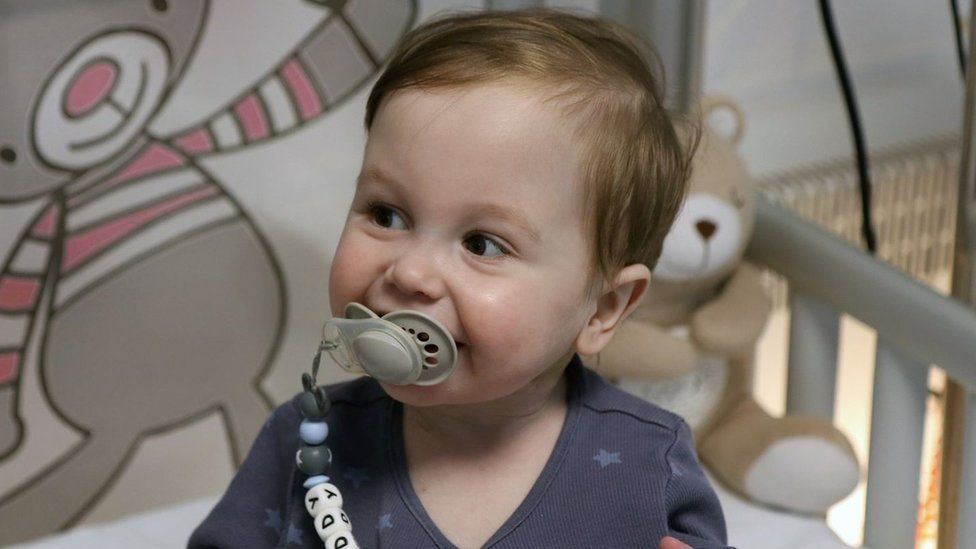
Teddy Nicholls inherited a rare condition which can cause liver failure in newborns and can also be fatal without treatment.
By Shivani Chaudhari and Storm Newton
BBC News and PA Media
A mum has saved her 21-month-old son’s life by donating part of her liver.
Teddy Nicholls inherited a rare condition called neonatal hemochromatosis which can cause fatal liver failure in newborns without treatment.
The donation from his mother Emma Nicholls, carried out at King’s College Hospital in London, is the second life-saving transplant Teddy has undergone.
He received a transplant at 10 weeks from a deceased donor in 2022.
In the most recent operation, surgeons used a technique known as a hitch-vein monosegment liver transplant.
The procedure involved reducing the size of donated liver tissue to suit a baby’s body.
The only alternative would be to wait for a deceased donor liver from another small baby, which the hospital said was “rare”.
Image source, PA Media
Teddy lives in Cambridgeshire with his mum, dad Greg and older brother Theo
Mrs Nicholls was unable to donate when her son was 10 weeks old because she had only recently given birth.
“I knew I wanted to do everything possible to help my son,” Mrs Nicholls said. “As a family we were so thankful to the donor and their family who saved Teddy’s life with his first organ transplant that I had no doubts about stepping in when needed.”
Three weeks after the procedure, Teddy returned home to Cambridgeshire to enjoy Christmas with Mrs Nicholls, his father Greg and five-year-old brother Theo.
“I am incredibly grateful to the whole hospital team from the theatres to the wards where we stayed; they’ve been fantastic looking after Teddy and I every step of the way,” Mrs Nicholls said.
“Being home and reunited as a family in time for Christmas makes us feel so lucky and grateful to everyone at King’s College Hospital.”
Dr Hector Vilca Melendez, consultant transplant surgeon at King’s College Hospital NHS Foundation Trust, said: “I’m delighted to see Teddy and Emma doing so well.
“Thanks to his mother’s donation, Teddy has the opportunity to develop as would be normal for any child.”
Follow East of England news on Facebook, Instagram and X. Got a story? Email eastofenglandnews@bbc.co.uk or WhatsApp 0800 169 1830
Related Topics
Related Internet Links
The BBC is not responsible for the content of external sites.








